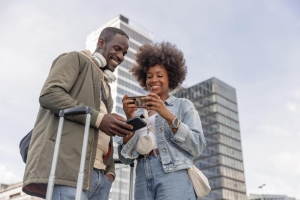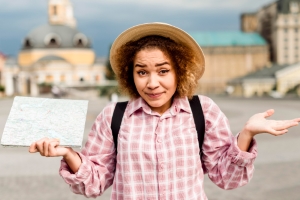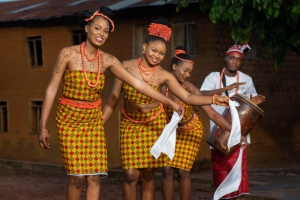Botswana is one of Africa’s safest travel destinations, known for its stable political environment, friendly locals, and breathtaking natural wonders. However, like any travel destination, it’s important to be aware of potential risks and take precautions to ensure a smooth and enjoyable trip. Whether you’re heading to the Okavango Delta, Chobe National Park, or the capital city of Gaborone, these safety tips will help you navigate Botswana confidently.
1. General Safety and Crime Awareness
Botswana has a low crime rate compared to other African nations, but petty crime can still occur, particularly in urban areas like Gaborone, Francistown, and Maun.
- Avoid walking alone at night, especially in unfamiliar or poorly lit areas.
- Be cautious with valuables—keep cash, electronics, and passports secure in a hotel safe or money belt.
- Watch out for pickpockets in crowded places like markets, bus stations, and tourist hotspots.
- If driving, keep car doors locked and windows up, especially at traffic stops.
- Avoid displaying large amounts of cash or expensive jewelry.
💡 Tip: If someone offers unsolicited help at an ATM or in the streets, politely decline and move away.
2. Wildlife Safety: Staying Safe on Safari
Botswana’s wilderness is home to some of the world’s most spectacular wildlife, but wild animals are unpredictable. Whether you’re self-driving or on a guided safari, follow these essential rules:
- Never approach or feed wild animals, no matter how harmless they seem.
- Stay inside your vehicle during game drives and only exit in designated safe areas.
- Keep a safe distance from elephants, lions, hippos, and buffalos—surprise encounters can be dangerous.
- Be cautious at campsites—wildlife often roams freely in and around unfenced lodges and camps.
- At night, use a flashlight to check for animals before walking around campsites.
- Follow your guide’s instructions—they are trained to keep you safe.
💡 Tip: Hippos and crocodiles are common near rivers—stay away from the water’s edge, especially at night.
3. Road Safety: Driving and Transportation Tips
Botswana has long stretches of remote roads, and while they are generally in good condition, driving can be challenging due to wildlife and erratic drivers.
- Drive on the left side of the road.
- Watch out for animals—elephants, antelope, and cattle often cross roads unexpectedly, especially at dawn and dusk.
- Carry extra fuel and water—gas stations are scarce in rural areas.
- Avoid driving at night—roads are poorly lit, and wildlife is more active.
- Check rental cars for spare tires and emergency kits before heading out.
💡 Tip: If renting a 4×4 for self-drive safaris, get familiar with off-road driving techniques—deep sand and river crossings can be tricky.
4. Health and Medical Safety
Botswana has good medical facilities in major cities, but rural areas have limited healthcare services. Here’s how to stay healthy:
- Get necessary vaccinations before travel—Yellow fever (if traveling from a risk country), Hepatitis A & B, Typhoid, and Tetanus are recommended.
- Take malaria precautions—if traveling to high-risk areas like the Okavango Delta and Chobe, use mosquito repellent, wear long sleeves, and take antimalarial medication.
- Drink bottled or filtered water to avoid stomach issues.
- Pack a first-aid kit with essential medications, insect repellent, and rehydration salts.
- Get travel insurance that covers medical emergencies, including medical evacuation in case of severe illness or injury.
💡 Tip: In case of an emergency, private hospitals in Gaborone and Maun provide better care than public clinics.
5. Money and Scams: Avoiding Tourist Traps
Botswana is notorious for fair pricing, and scams targeting tourists are rare. However, it’s good to be cautious:
- Exchange money at official banks or forex bureaus—avoid street money changers.
- Use ATMs inside banks or shopping malls to reduce the risk of card fraud.
- Verify tour operators before booking safaris—stick to reputable companies with good reviews.
- Be cautious of overly friendly strangers offering deals that seem too good to be true.
💡 Tip: Carry some cash, as card payments may not be accepted in rural areas or small lodges.
6. Cultural Awareness and Respecting Local Customs
Botswana has a welcoming and conservative culture, so respecting local customs will ensure positive interactions.
- Dress modestly, especially in villages or religious sites.
- Greet people with a handshake—it’s a sign of respect.
- Ask permission before taking photos of locals, particularly elders or uniformed personnel.
- Do not discuss politics openly—Botswana is politically stable, but political conversations can be sensitive.
- Respect environmental conservation laws—never litter or pick plants in national parks.
💡 Tip: Learning a few words in Setswana (Botswana’s main language) will be appreciated!
7. Emergency Contacts and Useful Information
In case of an emergency, keep these numbers handy:
- Emergency Medical Services: 997
- Police: 999
- Fire Department: 998
- Tourism Information: Botswana Tourism Office (+267 391 3111)
If you lose your passport, contact your embassy or consulate in Botswana or neighboring South Africa.
💡 Tip: Save emergency contacts on your phone and write them down in case your battery dies.
Final Thoughts: Is Botswana Safe for Travelers?
Yes! Botswana is one of Africa’s safest and most tourist-friendly destinations. With the right precautions—staying alert in cities, respecting wildlife, and following local customs—you can explore this beautiful country with confidence. By keeping these safety tips in mind, you’re set for an unforgettable and trouble-free adventure in Botswana!







